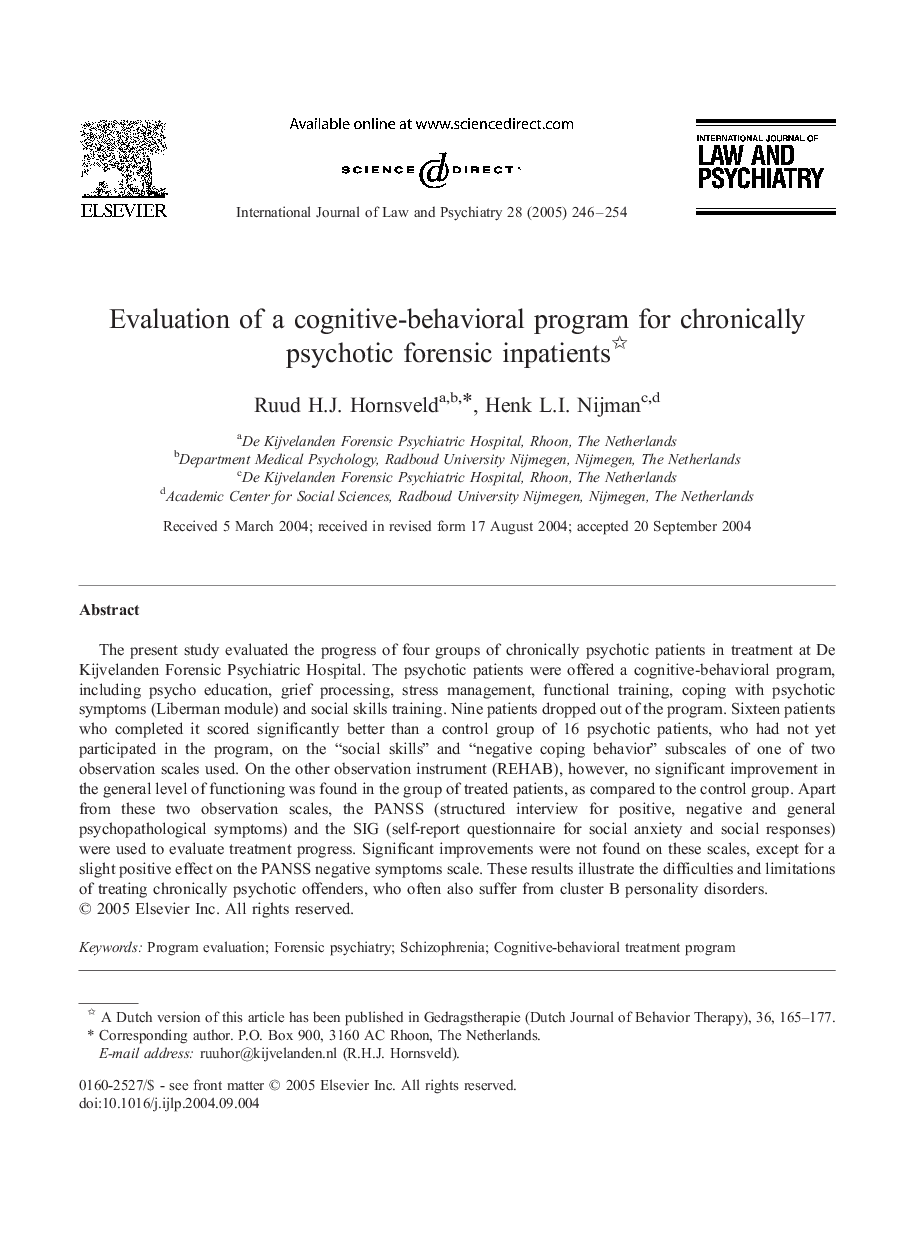| Article ID | Journal | Published Year | Pages | File Type |
|---|---|---|---|---|
| 9623346 | International Journal of Law and Psychiatry | 2005 | 9 Pages |
Abstract
The present study evaluated the progress of four groups of chronically psychotic patients in treatment at De Kijvelanden Forensic Psychiatric Hospital. The psychotic patients were offered a cognitive-behavioral program, including psycho education, grief processing, stress management, functional training, coping with psychotic symptoms (Liberman module) and social skills training. Nine patients dropped out of the program. Sixteen patients who completed it scored significantly better than a control group of 16 psychotic patients, who had not yet participated in the program, on the “social skills” and “negative coping behavior” subscales of one of two observation scales used. On the other observation instrument (REHAB), however, no significant improvement in the general level of functioning was found in the group of treated patients, as compared to the control group. Apart from these two observation scales, the PANSS (structured interview for positive, negative and general psychopathological symptoms) and the SIG (self-report questionnaire for social anxiety and social responses) were used to evaluate treatment progress. Significant improvements were not found on these scales, except for a slight positive effect on the PANSS negative symptoms scale. These results illustrate the difficulties and limitations of treating chronically psychotic offenders, who often also suffer from cluster B personality disorders.
Related Topics
Health Sciences
Medicine and Dentistry
Forensic Medicine
Authors
Ruud H.J. Hornsveld, Henk L.I. Nijman,
